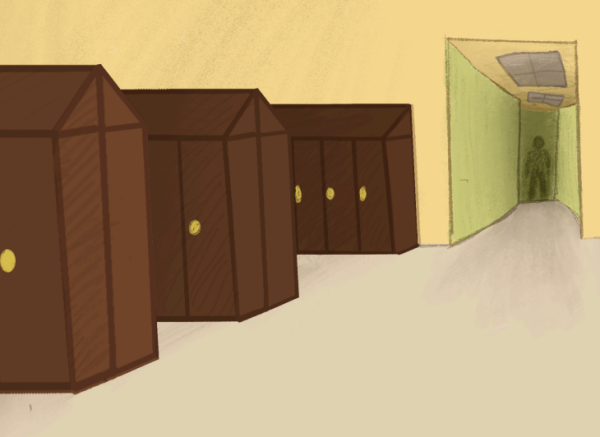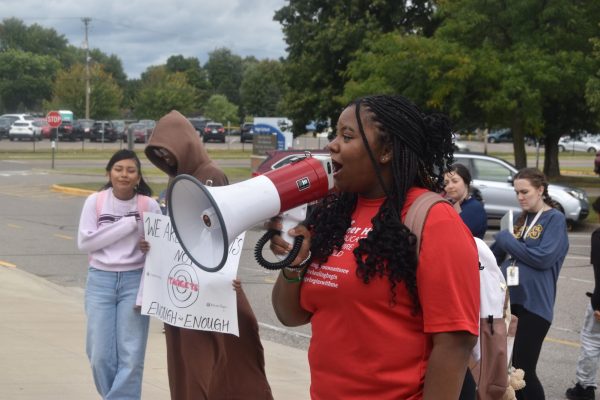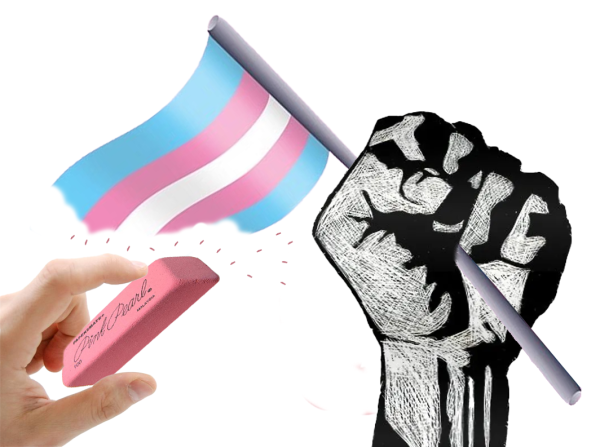No more flavors in Fridley: A rise in tobacco use leads city council to enact ban
The Holiday Station Store on 57th Avenue in Fridley, like other gas stations and convenience stores in the township, will no longer be able to sell flavored tobacco products.
The city council in Fridley, Minnesota recently passed a law restricting the sale of flavored tobacco products within city limits. This two-part series concludes with an overview of modern-day tobacco use and the newly enacted band in Fridley.
Modern-day tobacco is made up of thousands of chemicals like nicotine, hydrogen cyanide and formaldehyde. Over seventy are said to cause cancer and are classified as carcinogens. Other chemicals appended in tobacco leaves cause heart disease, lung disease, or other long-lasting health issues. By weakening your airways and the small air sacs in your lungs, smoking can cause lung disease. For example, COPD, which involves emphysema and chronic bronchitis is a result of this addictive behavior. Those who started smoking in their childhood or adolescence had life-long critical issues, including a rise in the number and severity of respiratory disorders and reduced physical activity.
“The flavors not only draw in current users but they draw in many young users,” Columbia Heights High School health and physical education teacher Ms. Anne Knutson said. “Because the adolescent brain is still developing, nicotine use during adolescence can disrupt the formation of brain circuits that control attention, learning, and susceptibility to addiction. Many young people vape because they believe it makes them feel less stressed out. The nicotine in vapes makes the stress you already feel worse.”
In Minnesota, e-cigarettes quickly enhanced tobacco use amongst adolescents and became a serious threat to youth in the late 2000s. Consequently, many cities in Minnesota in the past decade have banned tobacco products in convenience stores and limited them to only tobacco shops.
On September 16, 2020, Fridley went through the necessary steps along with 17 other cities in Minnesota to limit the sale of aromatized tobacco products. City council members voted 4-1 but ultimately chose the community’s health over the business benefits. Many advocated that this would restrict the allowed market. Gas stations would lose money, and it’d be against the local people’s earnest wishes.
“I think this would be a tremendous way to abandon the mass use of cigarettes in our town and it will benefit us:the people,” Zeynab Ahmedm, a resident of Fridley and a prospective freshman at CHHS, said. “This will be a constructive step for our city. Conceivably, there are some harmful things that come from not allowing these products to be sold in regular shops, but it doesn’t outweigh the good.”
Others maintain a diverse perspective on whether this ban will be useful and if it will overcome the issue at hand.
“I don’t think a ban will produce the problem to go away,” Knutson said. “I do think it is a heroic first step to decreasing the direct access, especially to younger users. The fun, colorful, enticing flavors make it look like it is for kids and I believe that is dangerous.”
It’s not likely this ban will deter high schoolers from seeking out usage, especially if they’re addicts. Being an addict is hard and can ruin friendships, family relationships, and even causes victims to lose their hobbies due to addiction.
Jeanette Stium, the manager at Holiday Station Store in Fridley, proudly spoke about how addiction causes many kids to discover loopholes to obtain these drugs.
“In our store, there have been restrictions and set rules since December of 2019, but [teens] discover alternative ways to acquire it,” Stium said. “I’m for this ban, but I don’t think it’ll make a considerable difference. Besides, in downtown Minneapolis, they’ve already limited access and many kids are coming from there to Fridley. The limitation in Minneapolis endures while we have more business over here.”
Other neighboring cities have also enacted their own bans, like Edina, or are in the process of passing similar restrictive measures, like Roseville. In the meantime, however, the sale of flavored tobacco products is still legal in several other easily accessible locations, including but not limited to Columbia Heights and Maple Grove.
“Not having them in convenience stores will decrease the number of times we see them and, in turn, the number of times we have to decide to buy [from distributors] or not,” Stium said. “The sweet-tasting flavors with the colorful enticing labels are appealing, particularly for youth and young adults. Is that really what we want to draw people to? Have we not learned our lesson with the history of the big tobacco companies?”
Many Minnesota state legislators agree with Stium, and while some are in favor of a statewide ban on flavored tobacco products, others on both sides of the aisle have pointed out that prohibition only boosts sales in other markets rather than stemming the tide of addiction.
“Even with the ban, people will still get it. I think without more focus on health and prevention education, it will continue to be a problem,” Stium said. “I think by the time we know more about these products, too much will already be done.”

Fartun Ahmed is a senior at CHHS and the Opinion Editor for the Heights Herald. She is a part of College Possible, National Honors Society and regularly...

Gissel Inamagua is the Co-Editor-in-Chief for The Heights Herald. She is involved in numerous activities here at CHHS. Currently, she is the captain of...








